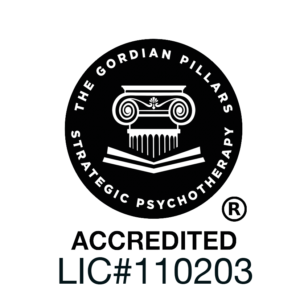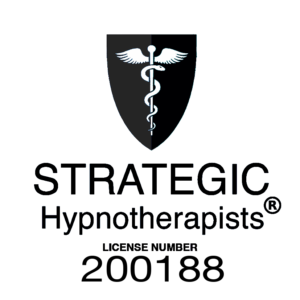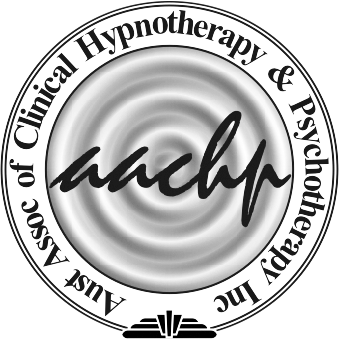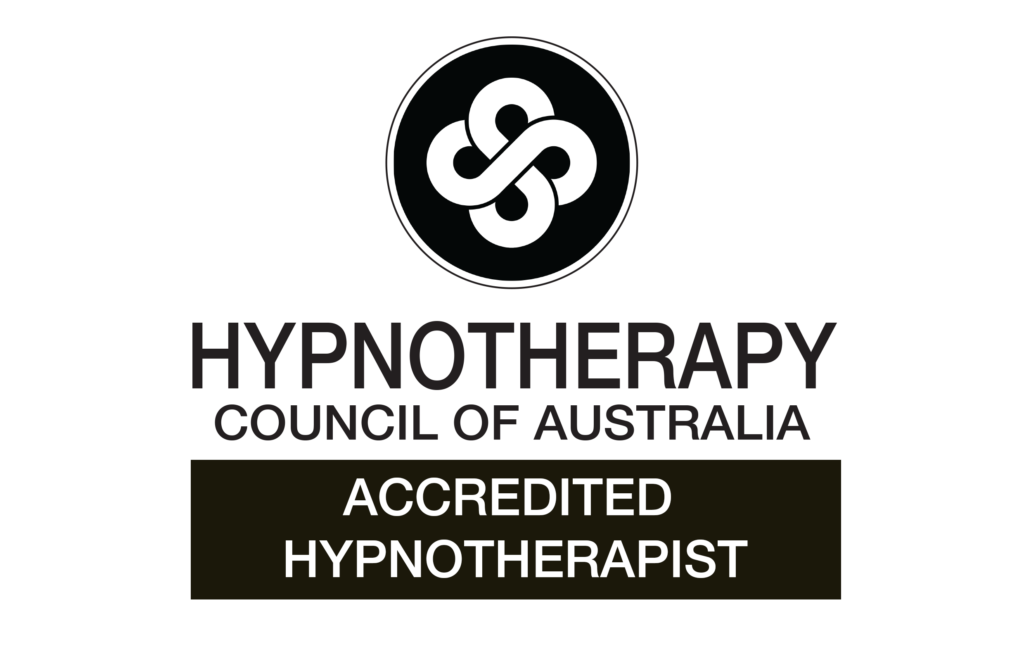Strategic Hypnotherapy and Multichannel Eye Movement Integration for Trauma in Blue Mountains
Living with PTSD or lingering effects of trauma can significantly affect the quality of your life, your relationships and work. The burden of trauma can trigger intense emotional distress as if that painful experience was happening again. You may try to avoid certain situations, people or places in a desperate attempt to regain control over flashbacks, intrusive thoughts or nightmares. Your mood may often be compromised, you may be hypervigilant with feelings of shame, guilt, fear, blame or anger crippling into your day-to-day life.
The good news is that no matter how old or how deep your wounds are, you can heal. And you can do it without even mentioning what has happened, as I know that retelling your story may be too traumatic itself.
My approach is the platinum standard in Australia, with a unique combination of the most effective eye movement therapy that exists – Multichannel Eye Movement Integration (MEMI), Neurolinguistic Programming (NLP), Strategic Psychotherapy and Clinical Hypnosis. I’m here to help you put those painful experiences in the past so they don’t control your now and leave you free to create your future.
Free 20-Minute Call
Try our free 20-minute consultation by phone or Zoom. No obligation. No Risk. No Charge.
Take the first step towards change today!
Hi I'm Aneta
Clinical Hypnotherapist in Faulconbridge in the Heart of the Blue Mountains
Are you ready to reclaim control over your thoughts and emotions after experiencing trauma? I’m Aneta, an experienced therapist specialising in helping individuals overcome PTSD and its debilitating effects.
My approach diverges from traditional talk therapy, offering innovative, solution-focused sessions that equip you with practical skills and new perspectives for lasting recovery. As a certified practitioner in Clinical Hypnotherapy and MEMI (Multichannel Eye Movement Integration), I bring a range of cutting-edge techniques specifically tailored to address trauma-related symptoms.
Understanding the unique challenges of PTSD, I prioritise your comfort and safety throughout our work together. I offer both in-person sessions in the tranquil Blue Mountains (just an hour from Sydney) and online sessions, providing a secure environment for your healing journey. Our focus will be on your current experiences, efficiently working to bridge the gap between your present struggles and the peace you seek. Together, we’ll address intrusive memories, manage heightened anxiety, and rebuild a sense of safety and control in your life.
With my guidance and your commitment, we can process traumatic experiences, quiet the hypervigilant mind, and cultivate the resilience you need to move forward. Are you ready to embrace real, lasting change and reclaim your life from PTSD? Let’s begin this transformative process towards healing and unlock your potential for post-traumatic growth.

FREE Individual Recordings Directly to Your Phone
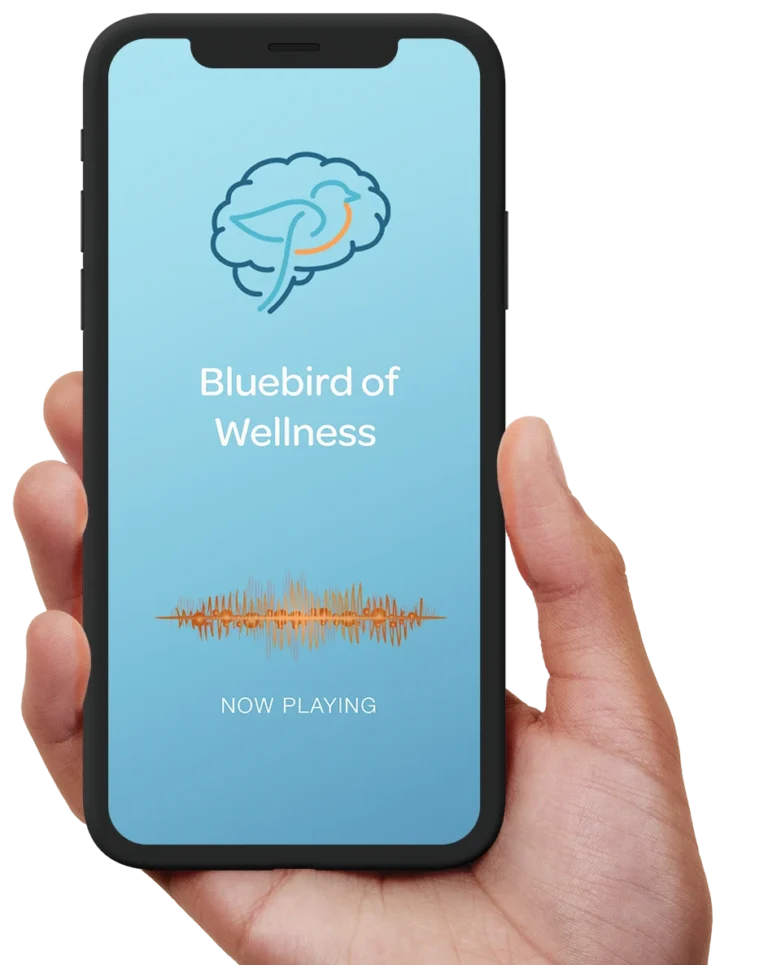
Why a Combination of Strategic Hypnotherapy and Multichannel Eye Movement Integration is More Powerful for Treating PTSD and Trauma
Healing your trauma is not about erasing memory but about enabling you to control when you access that memory and ensuring that the memory doesn’t cause strong emotional, somatic and sensory reactions.
My unique approach features a combination of the most effective treatments – Multichannel Eye Movement Integration (MEMI), Neurolinguistic Programming (NLP), Strategic Psychotherapy and Clinical Hypnosis.
Traditional trauma therapies tend to emphasise exposure over relaxation, sometimes resulting in extreme client discomfort. Multichannel Eye Movement Integration (MEMI) emphasises client comfort over exposure, as we know that a client who is overwhelmed by exposure is unable to process traumatic events. I will guide your eyes to all locations in your visual field – while you think about your traumatic experience in a calm dissociated state we first establish and listen to my spoken strategic prompts. This reduces your limbic reactivity, and frees your amygdala from traumatic stress, allowing your hippocampus to put the experience into its proper context – something past, not present.
I am one of the first therapist in Australia to be trained in Multichannel Eye Movement Integration (MEMI) and I am honoured to be able to provide this fast, gentle and effective method which works equally well in person or online via Zoom.
“There are several reasons why MEMI is presumed to be more efficient than EMDR. Its eye movements are multidirectional and traverse the entire visual field, while EMDR’s only move back and forth on the horizon. MEMI includes strategic verbal prompts to stimulate the down regulation of emotions and the reorganisation of sensory distortions, whereas EMDR uses no similar technique. A prominent feature of EMDR is its focus on irrational cognitions as a cause of maladaptive reactions to traumatic events. MEMI practitioners reject this notion because extensive clinical experience has shown that cognitive distortions resolve on their own —without focused attention — in response to the desensitisation of the somatic and sensory reactions to experienced traumas.” (Reference: Multichannel Eye Movement Integration: The Brain Science Path to Easy and Effective PTSD Treatment by Mike Deninger PhD).
Strategic Psychotherapy is a brief, solution-focused therapy that focuses on uncovering and dismantling the unconscious patterns you’ve developed while your brain was suffering from lingering effects of trauma.
By integrating Clinical Hypnotherapy, we can fast-track the process, restructuring the thought patterns and behaviours that are no longer serving you.
The above approach yields the fastest and most complete resolution of your trauma.
PSYCHOANALYSIS
38% Effectiveness After 600 Sessions (typical Talk Therapy)
BEHAVIOURAL THERAPY
72% Effectiveness Affter 22 Sessions
HYPNOTHERAPY
93% Effectiveness After 6 Sessions
Source: Psychotherapy study by Alfred A. Barrios, Ph D. Published in American Health Magazine Volume 7.
Words from Those I've Helped
Frequently Asked Questions
Not sure yet? Here are the answers to some common questions
Strategic psychotherapy is a concise, results-driven approach that focuses on achieving meaningful change. Rather than exploring the reasons behind your behaviors, it looks at how you engage with the world. I focus on identifying the unconscious frameworks that sustain your challenges, rather than delving into your past for explanations.
By integrating hypnotherapy, we can expedite the process, allowing for quicker recognition and transformation of ineffective thought patterns and behaviors. Clients often experience faster relief, as the hypnotic state enhances their readiness for change, streamlining the recovery journey.
This method is especially effective for those who desire rapid progress or feel stuck within conventional therapeutic frameworks.
Many traditional hypnosis methods rely on guided visualizations to promote relaxation. While envisioning serene scenes like a tranquil ocean or a magical forest can be enjoyable and provide temporary relief, they often fail to tackle the underlying issues or equip you with new skills. Similarly, one-size-fits-all scripts may overlook your unique circumstances.
In contrast, Strategic Hypnotherapy targets the core elements that contribute to your challenges. This approach personalizes each session to fit your specific needs, making it a more effective and meaningful experience for lasting change.
Traditional hypnosis often relies on scripted instructions, directing you on what to do, and may include techniques like hand levitation that can lead to resistance.
I practice a modern neo-Ericksonian form of hypnosis that emphasizes exploration rather than compliance. This approach encourages you to consider possibilities and choose what resonates with you, eliminating the need for resistance and any worries about your ability to be hypnotized.
Everyone has the potential to be hypnotized, though the depth of trance can vary among individuals. Importantly, the effectiveness of the therapy is not dependent on how deep the trance is.
However, I will not conduct a session if you are under the influence of substances that alter your perception, such as alcohol or drugs.
Hypnosis can be likened to guided meditation, but it goes beyond mere relaxation and inner peace. It creates a distinct brainwave pattern that is different from normal waking, sleeping, or meditative states, resembling the alpha state. This state is characterized by physical and mental relaxation, along with enhanced clarity and awareness of your environment.
Clinical hypnotherapy is a scientifically validated approach that effectively tackles a wide range of mental and emotional issues. It works to reprogram your cognitive patterns, allowing you to regain control over your mental and emotional health.
Hypnosis is a safe and natural state of mind that you’ve likely experienced before—perhaps while driving and losing track of the journey, during a captivating movie, or just before drifting off to sleep.
Despite common misconceptions about hypnosis being a form of mind control or requiring a deep trance from which you can’t awaken, that’s simply not true. You remain fully conscious and aware of everything I say. I can’t implant thoughts into your mind against your will, and you don’t actually fall asleep; therefore, there’s no need to wake up. If you do start to drift off in a relaxed state, I’ll gently guide you back so you can stay engaged and benefit from the session.
No, not in a therapeutic context. Many people mistakenly believe that hypnotists control their clients’ actions and thoughts, largely due to depictions in television and entertainment. In those scenarios, participants are typically selected for their willingness and comfort with being a bit silly in front of an audience.
In therapy, however, hypnosis is a gentle and guided relaxation method that fosters a soothing atmosphere, making the therapeutic process more effective. You are always in control during the session; you can choose to ignore suggestions from the hypnotherapist or even leave the room if you prefer.
The goal of clinical hypnotherapy is to support clients, not to exert power over them. You can trust that you are in safe and experienced hands when you decide to work with me.
Hypnosis is a highly individual experience, and there’s no single correct way to engage with it. When in a trance-like state, many people find themselves in a deep mental, physical, and emotional relaxation, which can be very therapeutic. Dr. Milton Erickson, a pioneer in hypnotherapy, referred to this process as “a free period in which individuality can flourish.”
As you enter hypnosis, you may notice an increased awareness paired with a profound sense of relaxation. You might feel dreamy and heavy, but rest assured, you are not asleep. You could be fully focused on my voice or let your thoughts wander, both of which are completely normal responses.
In this relaxed state, your conscious mind takes a break, allowing you to tap into your inner resources and insights.
During hypnotherapy, I provide suggestions and metaphors that you can adapt to your own life. It’s important to note that I cannot implant ideas into your mind; instead, I serve as a guide, helping you explore your own potential and achieve your goals.
The goal of our session is to identify the root cause of your concerns. For example, you might seek help for excessive alcohol consumption, but we may discover that it’s a coping mechanism for underlying anxiety. In that case, we’ll address the anxiety first, which often helps with the alcohol issue as well.
During our initial meeting, we’ll review your intake form and medical history, and discuss your lifestyle. I’ll ask targeted questions to pinpoint what’s missing between your current situation and your desired outcome. Together, we’ll create a tailored treatment plan to bridge that gap. My approach doesn’t just provide temporary relief; I aim to equip you with lasting strategies to navigate challenges long after our sessions conclude.
In your first session, you’ll receive both psychotherapy and hypnosis, enabling you to start making positive changes right away. Additionally, your hypnosis session will be recorded for you to listen to between our meetings, reinforcing your progress.
Preparing for your session is quite straightforward. It’s advisable to refrain from coffee or energy drinks for a few hours beforehand, as well as any substances that might hinder your ability to relax.
Make sure to come sober and without any cognition-altering substances.
If you’re attending an online session, please arrange for a quiet space where you won’t be disturbed. While total silence isn’t required, it’s important that no one interrupts you or enters the room during our time together.
The combination of Strategic Psychotherapy and Clinical Hypnotherapy offers a flexible approach suitable for addressing a wide variety of psychological issues.
Research increasingly shows that adding hypnosis to therapy significantly enhances its effectiveness. This method goes beyond traditional diagnostic categories, offering a comprehensive treatment solution for numerous conditions.
Examples of areas where Strategic Psychotherapy and Clinical Hypnotherapy can yield positive and lasting outcomes include: addictions, alcoholism, anger management, anxiety, burnout, building confidence, depression, exam nerves and performance, gambling issues, grief, guilt, habit control, IBS, letting go, nail biting, OCD, panic attacks, personal growth, phobias, PTSD, procrastination, public speaking, relationship challenges, relaxation, releasing the past, smoking cessation, vaping cessation, stress relief, and trauma recovery.
While traditional talk therapies can be beneficial, many individuals seek immediate change rather than spending months revisiting unchangeable past experiences.
In Strategic Psychotherapy, I focus on the mental framework you’ve built over the years—your thought patterns that contribute to ongoing challenges—rather than exploring your past for explanations.
You might recognize that behaviors like anxiety-related drinking, smoking, or PTSD are unhelpful, yet feel stuck in them.
My approach involves identifying the core elements of these issues and tackling them directly. Our sessions are centered on finding solutions and equipping you with new skills and mindsets for lasting change. By integrating hypnosis, we can reach your unconscious mind, where the root of these problems lies, making the therapy more effective.
Hypnotherapy in Australia is a self-regulated field, meaning there are currently no legal requirements for hypnotherapists to adhere to specific training standards. This has led to a proliferation of poorly trained practitioners who may have only completed a short, three-day course, yet claim to provide hypnotherapy services.
This situation can create confusion for those looking to choose a hypnotherapist from the many advertisements in their area. It’s crucial to select a therapist who is qualified to address your mental health issues without relying solely on hypnosis—such as a psychotherapist or psychologist. Without this foundational expertise, hypnosis may provide temporary relief but won’t equip you with the skills necessary for lasting change.
Keep in mind that hypnosis is just a tool; the effectiveness lies in how it is applied.
Professional bodies like the Hypnotherapy Council of Australia are responsible for setting industry standards, including minimum training, ethical guidelines, professional supervision, and ongoing education.
Hypnotherapists not affiliated with recognized professional associations may lack adequate training. To find an accredited hypnotherapist, visit the Hypnotherapy Council of Australia’s website at https://hypnotherapycouncilofaustralia.com.
The number of sessions you’ll need depends on your individual circumstances. Typically, it’s suggested to have between 4 to 6 sessions in total. Your specific treatment plan will be established during our first session and reassessed in each subsequent meeting.
The goal is to help you do better in life, not just to feel better. You can expect to see improvements after the first session, and if you follow my guidance between sessions, you may be pleasantly surprised by how much progress you can make in a short period.
As of now, clinical hypnotherapy isn’t covered by Medicare. However, many private health insurance providers offer partial refunds, depending on your coverage plan. Be sure to check with your insurance provider to find out if you qualify for any reimbursement.
THERAPY:
15 min phone consultation – FREE
Initial Session (90min) $265
Single follow up Session (60min) $180
4 Pack* (1x 90min + 3x 60min) $695
*Packages must be used within six months from purchase date
THERAPEUTICAL:
REIKI (45min) $70
Initial TFH Kinesiology Session (90min) $150
Single follow up Kinesiology Session (60min) $100
If you are still on the fence, factor in how the cost of therapy outweighs the cost of maintaining the problem. How much do opportunities missed due to anxiety cost, how much do you pay for cigarettes, alcohol, retail “therapy” or other costly compensatory behaviours… not to mention mental health cost, relationship costs etc… Then the value of effective therapy becomes evident.
Cancellations with less than 24hrs notice may incur 50% cancellation fee.
IN PERSON OR ONLINE VIA ZOOM
Experience the power of hypnotherapy in person or
in Faulconbridge in the Heart of the Blue Mountains, or from the comfort of your home.
Be assured that the sessions are as effective online as live in person.
Experience the power of hypnotherapy in person or in Faulconbridge in the Heart of the Blue Mountains, or from the comfort of your home. Be assured that the sessions are as effective online as live in person.
Free 20-Minute Call
Try our free 20-minute consultation by phone or Zoom. No obligation. No Risk. No Charge.
Take the first step towards change today!

